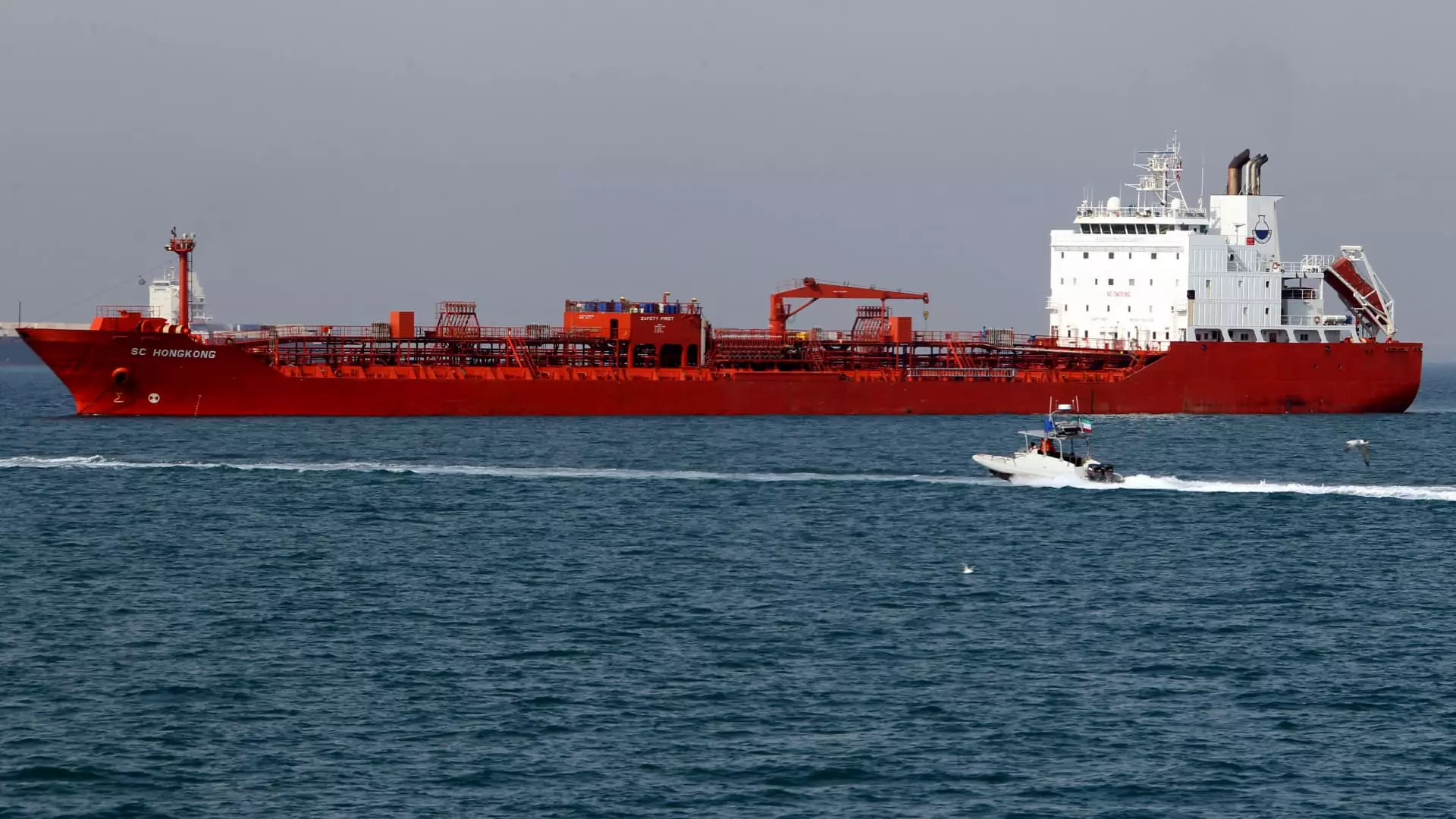The dynamic world of oil pricing experienced a seismic shift last Tuesday, sending ripples throughout global markets. President Donald Trump’s announcement permitting China to continue purchasing oil from Iran injected new life into a market previously reeling from rising tensions in the Middle East. This unexpected maneuver suggests that the U.S. is softening its iron-fisted strategy, even in the wake of a dire conflict that has gripped the region.
The immediate impact was jarring: prices plummeted sharply, with the global benchmark Brent crude falling by 5.68% to a mere $67.42 per barrel. U.S. crude similarly sagged, settling at $64.63 per barrel, marking a stark reminder of just how volatile the oil market can be under the whims of politics. As investors adjusted to this new narrative, it became evident that the risk of significant supply disruptions was waning, igniting speculation that perhaps peace could be on the horizon.
Trump’s Shift: A Step Back or a Dangerous Tactic?
President Trump’s statements on social media were laden with contradiction, naively suggesting that this was an achievement worthy of reverence. Quoting, “Hopefully, they will be purchasing plenty from the U.S., also. It was my Great Honor to make this happen!”, he seems to revel in a self-made narrative of diplomacy, while the realities suggest a more troubling picture. The irony lies in his earlier threats to estranged nations; an abrasive approach that severely limited Iran’s market access is now being reversed as he aims to stabilize oil prices — a scenario which raises eyebrows over his governance style.
Analysts like Matt Smith, the lead oil expert at Kpler, speculate that the recalibration of Trump’s stance towards Iran is rooted not only in his general aversion to chaos but in the economic implications of oil price surges. The reality is stark; rising prices affect American consumers and the economy as a whole. However, this supposed ‘diplomacy’ may carry with it the seeds of future conflicts, as it could empower regimes that historically threaten global stability.
The Aftermath of Military Engagements
The backdrop to these recent developments is laden with military tension. The U.S. had previously joined Israel in a campaign targeting Iran’s nuclear capabilities, a drastic escalation that sent alarm bells ringing across oil markets. Ironically, the military actions undertaken only a weekend prior were met with relative restraint from Tehran, which instead opted for a non-catastrophic retaliation against a U.S. airbase in Qatar. Such tactical restraint points to a cautious approach from Iran that now invites questions about the U.S.’s own aggressive posturing.
The ongoing ceasefire between Israel and Iran, announced by Trump shortly after the conflict, appears fragile at best. It was interesting to note Trump’s candid frustration expressed toward Israel as he en route to a NATO summit. Publically chastising an ally isn’t merely a rhetorical tactic; it sends loud signals that U.S. policy may be shifting, perhaps towards a less combative posture in the region. The delicate balance of diplomacy and military aggression seems uniquely precarious today.
A New Era of Oil Dependency and Geopolitical Risks
The Strait of Hormuz, a pivotal maritime artery for global oil transport, sits at the intersection of these tensions. Approximately 20% of the world’s crude oil traverses this strait, underscoring its significance not just for Iran, but for many Gulf nations including Saudi Arabia and Iraq. Speculation remains rife about potential closures or attacks on energy infrastructure, yet such thoughts now contend with the rapidly evolving landscape which may disincentivize extreme moves.
In a moment that illustrates the complexities of international relations, we find ourselves at a crossroads of economic necessity and geopolitical strife. Employers and investors alike must remain vigilant, as the ramifications of Trump’s shifts could lead to destabilization that extends far beyond oil prices. The tide of international politics will continue to shape the fortunes of millions, while the repercussions of short-term victories echo in the halls of global power. Thus, the oil market’s recovery may just be a fleeting illusion in a theater of unpredictable global affairs—a dangerous game that we must navigate with keen awareness.



Leave a Reply